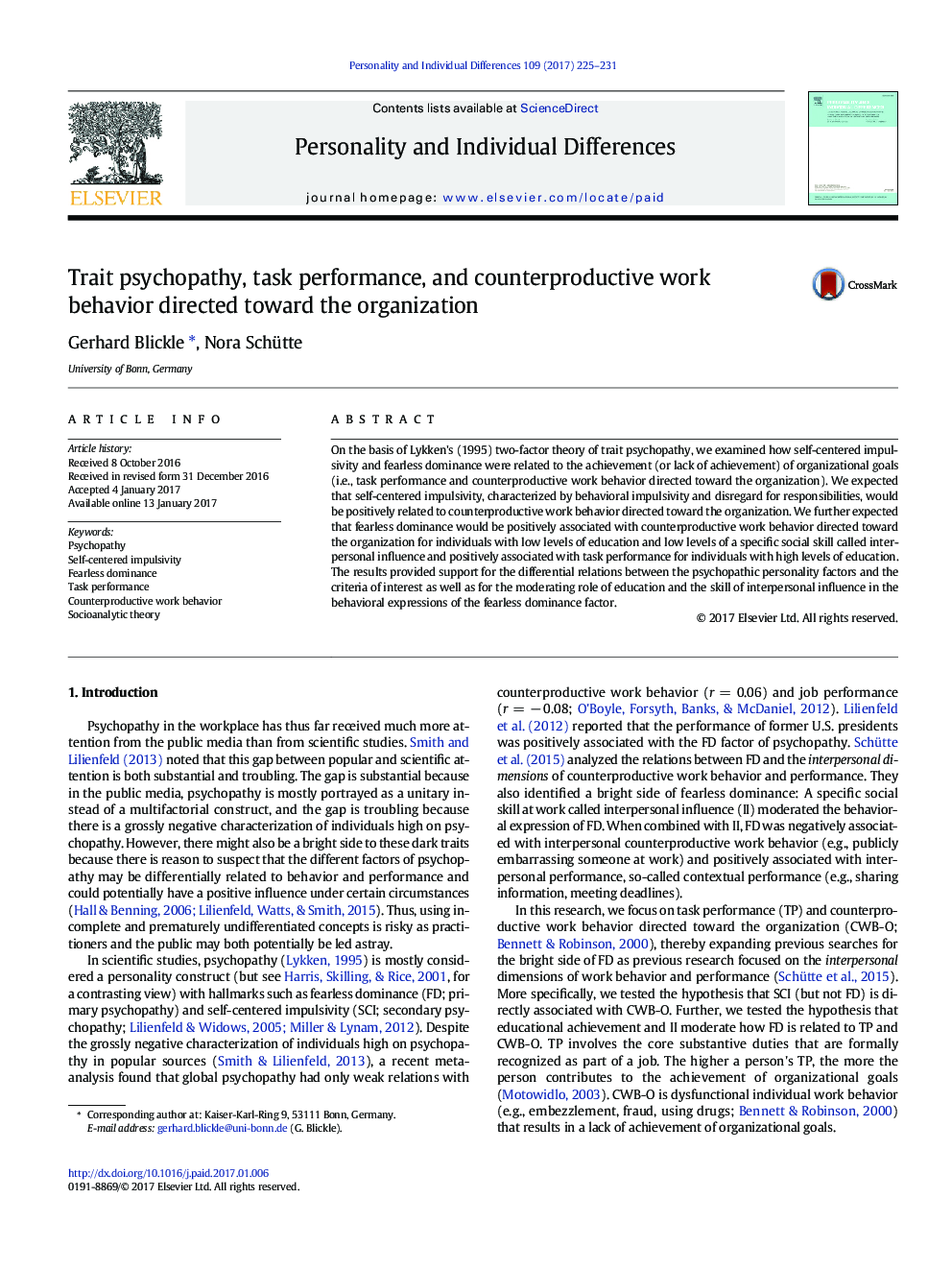| Article ID | Journal | Published Year | Pages | File Type |
|---|---|---|---|---|
| 5036308 | Personality and Individual Differences | 2017 | 7 Pages |
â¢Study assessed adaptive and maladaptive features of psychopathy in the workplace.â¢Impulsivity predicts counterproductive work behavior directed toward the organization.â¢Fearlessness combined with high educational level predicts task performance.â¢Fearlessness combined with low educational level predicts counterproductive work behavior.â¢Fearlessness dominance combined with low influence skill predicts counterproductive work behavior.
On the basis of Lykken's (1995) two-factor theory of trait psychopathy, we examined how self-centered impulsivity and fearless dominance were related to the achievement (or lack of achievement) of organizational goals (i.e., task performance and counterproductive work behavior directed toward the organization). We expected that self-centered impulsivity, characterized by behavioral impulsivity and disregard for responsibilities, would be positively related to counterproductive work behavior directed toward the organization. We further expected that fearless dominance would be positively associated with counterproductive work behavior directed toward the organization for individuals with low levels of education and low levels of a specific social skill called interpersonal influence and positively associated with task performance for individuals with high levels of education. The results provided support for the differential relations between the psychopathic personality factors and the criteria of interest as well as for the moderating role of education and the skill of interpersonal influence in the behavioral expressions of the fearless dominance factor.
